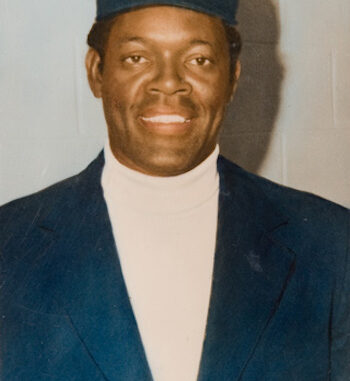
– (Source: www.blackenterprise.com) – The day Art Williams became the first Black umpire in Major League Baseball’s National League, he knew it would be all worthwhile. And it was, just in time to celebrate his memory for Black History Month. Williams’ story—one of triumph and tragedy—will be documented by filmmaker Ed Bartel of Atlanta in greater detail.
Born in Camden, Arkansas, the Bakersfield, California-bred athlete began his career as a pitcher for his hometown Bakersfield Indians of the California League, in the Detroit Tigers organization, in 1953. He was the first Black player signed by the Tigers, mainly known for his hard-throwing right-handed pitches. In Bakersfield’s Sam Lynn Ballpark, Williams laid down the roots for what would grow into a monumental career.

“I hope that this piece sheds light on someone who really contributed and opened the door for many African Americans and just people in general who have a dream,” Bartel told KGET News. “And they want to pursue it, and they don’t let anything stop ’em.”
Having ended his pitching career with an elbow injury, Williams became the second Black umpire in major league history, following Emmett Ashford and the first in the National League. Williams’ umpire journey began with local recreational baseball. While working, he was encouraged to attend Florida’s Major League Baseball’s umpire school in 1969 by a former scout for the San Francisco Giants. Later he was hired to umpire in the minor leagues before taking the big step from the Triple-A International League to ultimately working the National League Championship Series in 1975.
It all ended for Williams when he was fired after the 1977 season. By this time, he had worked 806 games in six MLB seasons. But Major League Baseball declined to renew his contract for unclear reasons. Williams suspected that not only was his dismissal racially motivated, but he believed that there was a one-Black-umpire quota system. Eric Gregg, a new Black umpire, was set to be promoted to the majors the following year. A complaint with the Equal Employment Opportunity Commission was filed and was still pending at the time of his death.
Soon thereafter, Williams returned to Bakersfield and took a job as a bus driver. His health started to decline in the following year as he suffered from headaches and seizures. He underwent brain surgery for a tumor on his pituitary gland and was in a coma for six weeks until his death on Feb. 8, 1979. He was just 44.
Bartel, the documentary filmmaker, met with the late umpire’s brother in mid-January to tell the story of a history-making career.
Audie Williams told KGET News how pleased he is to celebrate his brother’s life by sharing his winnings and burdens as a pioneer in Major League history.
“I know Art would be very pleased,” said Williams, who was seven years younger than his late brother. “And it’s something that makes me feel warm and appreciative. Even my kids. They will tell me, Dad, that’s history! That was my uncle.”
Bartel’s documentary: Unbelievable: The Art Williams Story is set for release in February 2022.

Be the first to comment